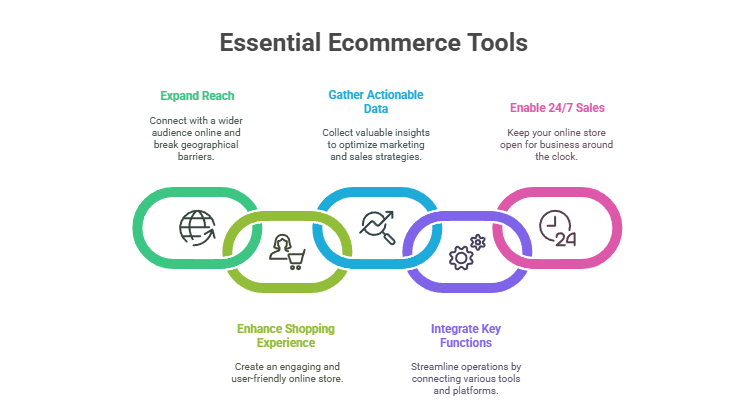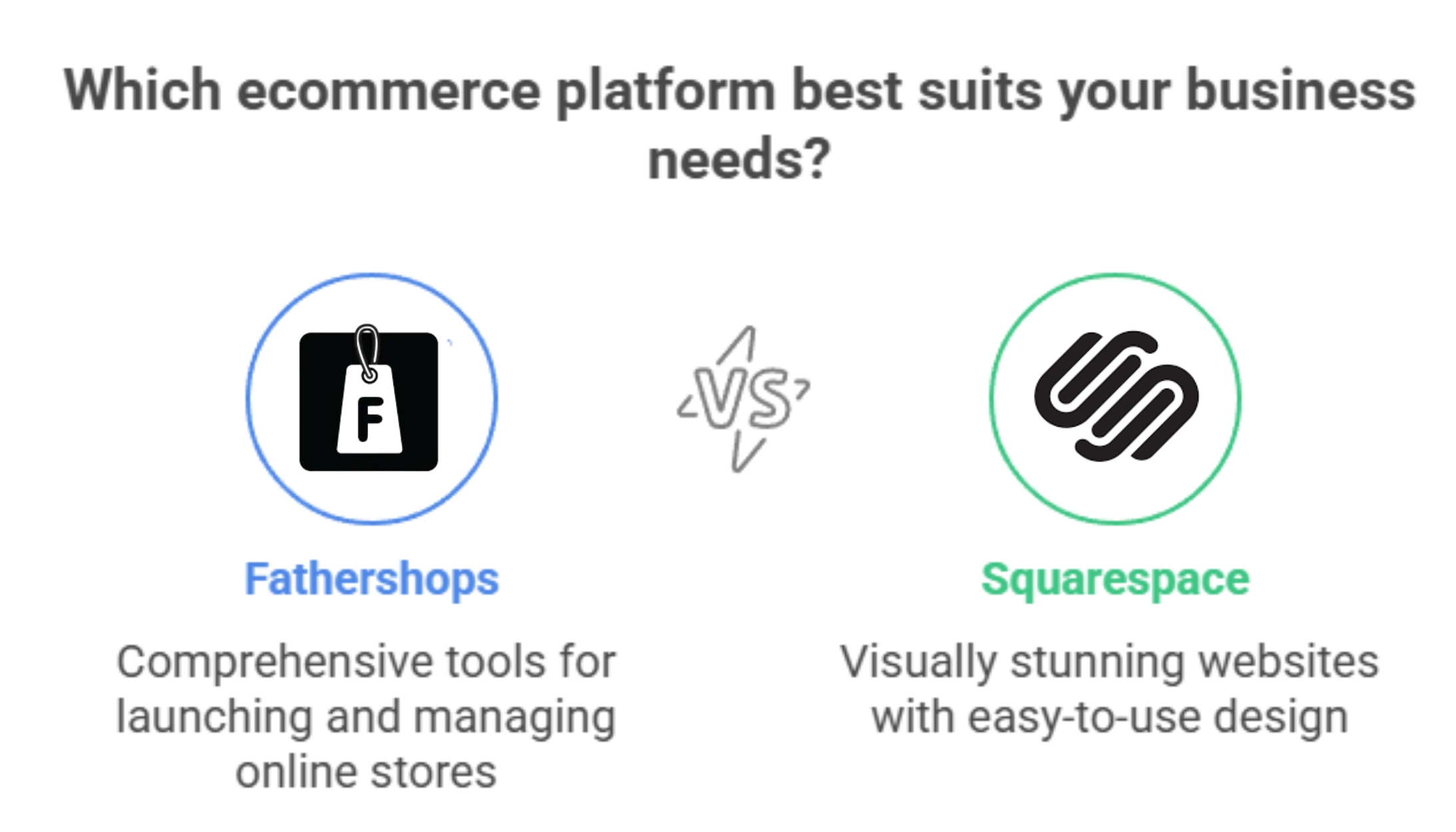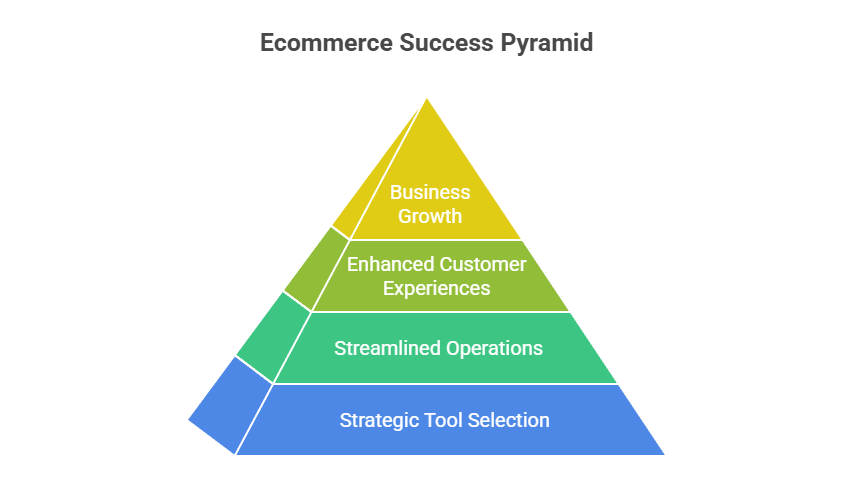Table of Contents
Ecommerce success hinges on more than just a great product. It requires a strategic application of the rightecommerce tools to streamline operations, facilitate growth, and maintain a competitive edge in the dynamic online marketplace. These tools are vital for efficiently managing your online store, from marketing to sales.
What are Ecommerce Tools?

Ecommerce tools are software applications, platforms, and plugins designed to assist business owners in managing and optimizing their online stores. They encompass a wide range of functionalities, from website building to inventory management and customer service. If you’re just getting started, understanding what an ecommerce business entails can be a helpful first step.
The core purpose of these tools is to streamline, organize, and automate key processes involved in running and growing an ecommerce business.
Examples include website builders, email marketing platforms, analytics dashboards, and customer support systems.
Why are Ecommerce Tools Important?

Developing custom software solutions can be costly and time-consuming. commerce tools offer a more efficient and affordable alternative , enabling you to create and manage your online store effectively while minimizing expenses and maximizing revenue potential. It’s about working smarter, not harder, so you can focus on the bigger picture – growing your brand and connecting with your customers.
A well-chosen ecommerce toolkitempowers you to:
- Expand Your Reach: Connect with a wider audience online and break geographical barriers. Reach potential customers you never thought possible.
- Enhance the Shopping Experience:Create an engaging and user-friendly online store that keeps customers coming back. This includes easy navigation, compelling product descriptions, and a seamless checkout process.
- Gather Actionable Data:Collect valuable insights to optimize your marketing and sales strategies. Understand what your customers want and tailor your approach accordingly.
- Integrate Key Functions:Streamline your operations by connecting various tools and platforms. This avoids data silos and creates a more efficient workflow for your team.
- Enable 24/7 Sales: Keep your online store open for business around the clock, catering to customers in different time zones and maximizing sales opportunities.
Ecommerce toolsare fundamental building blocks for any online business. The complexities of customer support, marketing, and logistics require a robust set of tools to ensure smooth and efficient operations. Imagine trying to build a house without the right hammer, nails, and blueprints – that’s what running an ecommerce store without the proper tools feels like!
Best Ecommerce Tool You must Know
Here are the key categories of the best ecommerce tools you should consider, along with specific examples and advice on how to best use them:
1. Ecommerce Platforms (Your Digital Foundation):
Choosing the right ecommerce platform is the crucial first step in establishing your online store. This platform serves as the core infrastructure for managing product pages, order fulfillment, and other essential functions. It’s where your customers will browse your products, add them to their cart, and complete their purchase, so choosing the right one is critical. Our comprehensive guide to the best ecommerce platforms can help you compare options and find the perfect fit for your needs.
The platform you select directly impacts your customers’ shopping experience. It needs to be user-friendly, fast, and reliable to ensure a smooth and enjoyable experience, which can significantly influence customer satisfaction and repeat purchase rates. Think of it as the foundation of your house – if it’s shaky, everything else will be too.
- Fathershops: An comprehensive ecommerce platform designed to help online businesses launch and manage their stores. It offers a suite of tools including a website builder with customizable themes, built-in marketing features for creating and analyzing campaigns, a shopping cart with multiple payment gateway options, and support for multichannel selling. It’s a great option for businesses that want an easy-to-use platform with lots of features and start an ecommerce business.

- Squarespace:Another option for creating a visually appealing store with an emphasis on simplicity, Squarespace is known for its clean design templates. It facilitates building an attractive online presence without requiring coding skills. If you value a visually stunning website without complex technical requirements, Squarespace is an excellent choice.
2. Content Creation (Engaging Your Audience):
Creating compelling content is essential for increasing your online store’s visibility and attracting potential customers. Think of content creation as your way of telling your brand’s story and providing value to your audience beyond just selling products.
- Canva:A design tool that empowers teams, even those with limited design experience, to create visually appealing graphics. Whether you’re building your brand identity or creating marketing materials, Canva’s drag-and-drop interface makes it easy to design and share professional-looking assets. Perfect for creating eye-catching social media graphics, email headers, and website banners.
- WordPress: For online stores that utilize blogging, a content management system like WordPress is beneficial. It allows you to develop a content strategy to nurture customer relationships, establish your brand, and generate recurring traffic. If you need guidance on setting up your online store, check out our detailed tutorial on how to build an ecommerce website.
3. Communication and Internal Organization (Streamlining Operations):
Effective communication and internal organization are vital for the smooth operation of any online business. As your business grows, you’ll need ways to communicate effectively with your team and manage projects efficiently.
- Slack: A messaging platform designed for professional communication, Slack allows you and your employees to communicate in real time. This enhances productivity for remote teams by enabling organized communication, project management, and daily task coordination. It’s like having a virtual office space where your team can collaborate and stay connected.
- Coda: A versatile productivity tool that helps manage various aspects of your business, such as marketing calendars and tracking documents. Its highly customizable nature makes it an excellent tool for organizing internal projects.
- Monday.com: A customizable project management tool that automates workflows and centralizes work processes in one location. Online stores can use Monday.com to manage inventory, track important metrics, and maintain project oversight. It helps ensure that everyone is on the same page and projects are completed on time.
4. Sales and Logistics (Fulfillment and Delivery):
Managing sales and logistics is a significant part of running an online business. Efficient fulfillment and delivery processes are essential for keeping your customers happy and building a positive reputation.
One increasingly popular method is dropshipping, where you don’t keep inventory but rely on a third-party supplier to ship directly to your customers. If you are new to dropshipping then here is a guide on What is Dropshipping Business so you can get some idea.
- Shipwire:A global fulfillment platform that manages orders for direct-to-consumer, retail, and dropship channels. By integrating with your existing shopping cart and marketplace, Shipwire provides logistical support and enables national and international shipping. It simplifies the process of warehousing, packing, and shipping your products, allowing you to focus on growing your business.
5. Marketing (Reaching Your Target Customers):
A variety of marketing tools are available to reach your target audience, from content marketing to paid advertising. Effective marketing is crucial for driving traffic to your online store and converting visitors into customers.
- Mailchimp:Email marketing platforms streamline the marketing process by helping you build, send, and track email campaigns. Mailchimp integrates with Fathershops, syncing customer, product, and purchase data. For another effective way to reach customers check our guide to Social Media Marketing.
- Buffer:A social media management platform that simplifies the process of scheduling content in advance across various social media channels.
- Ahrefs: An SEO tool that assists in optimizing your website for search engines. You can use it for keyword research to understand what customers are searching for, and then incorporate those keywords into your product pages and blog posts to improve search visibility. Don’t underestimate the Importance of SEO in Ecommerce Business.
6. Analytics (Measuring Performance):
Ecommerce analytics help you measure user behavior, identify performance trends, and track return on investment (ROI). Understanding your data is essential for making informed decisions and optimizing your strategies. A/B testing tools for ecommerce are invaluable for determining which variations of your website or marketing materials perform best.
- Google Analytics:Gathers insights on website traffic, visitor demographics, and real-time stats. Set up conversion goals in Google Analytics. This allows you to track specific actions that you want users to take on your website, such as making a purchase or signing up for your email list. Regularly review your data; don’t just set it and forget it. Look for trends and patterns that can inform your decisions.
- Optimizely: A digital experiences platform that allows you to conduct A/B testing and deliver personalized messaging. You can gain insights into the efficacy of your experiments and use that data to uncover what content converts. Optimizely is one example of valuable A/B testing tools for ecommerce.
7. Customer Service (Supporting Your Customers):
Providing excellent customer support throughout the customer journey is essential for retaining customers and attracting new ones. Happy customers are repeat customers, and they’re more likely to recommend your store to others. Prioritize Ecommerce Customer Service if you want your customers to stay loyal to your business.
- Acquire:Helps online stores provide high-quality customer support by streamlining workflows and consolidating customer information for customer service agents. This helps your support team resolve issues quickly and efficiently.
- Zendesk: A customer support platform that puts support tickets from different channels—social media, email, and chat—in one location, simplifying troubleshooting and improving response times.
8. Inventory Management (Keeping Track of Your Products):
As your business grows, you’ll need a system to manage your inventory levels, track sales, and avoid stockouts.
- Spreadsheets (for starters): For small businesses just starting out, a simple spreadsheet might be enough to track inventory. Be sure to include columns for product name, SKU, quantity on hand, reorder point, and supplier information.
- Zoho Inventory or QuickBooks Commerce (for scaling up): These dedicated inventory management software tools automate the tracking process and help you avoid stockouts or overstocking. They integrate with your ecommerce platform and provide real-time visibility into your inventory levels.
9. Payment Gateways (Getting Paid Securely):
A reliable payment gateway is essential for processing customer payments securely and efficiently.
- Stripe:Provides a robust and adaptable payment gateway that integrates seamlessly with most ecommerce platforms. It supports a variety of payment methods and offers advanced features such as subscription management and fraud protection.
- PayPal: A widely recognized and trusted payment option that provides customers with a familiar and secure way to complete transactions.

Building a successful ecommerce business requires more than just a good idea; it requires a strategic approach to selecting and utilizing the right tools. Don’t feel overwhelmed by the sheer number of options.
Start with the essentials – a reliable ecommerce platform, a way to communicate with your customers, and a system for tracking your data. As your business grows, you can gradually add more tools to address specific needs and challenges.
Remember, the key is to choose tools that streamline your operations, improve the customer experience, and help you achieve your business goals. By investing in the right tools, you can lay a strong foundation for a thriving ecommerce venture and achieve lasting success in the competitive online marketplace.





